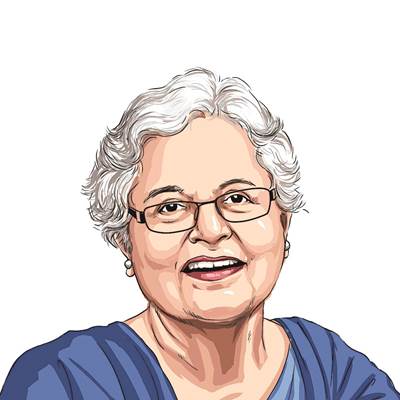Opinion Its not just corruption
Internal dissension could undo the UPA in Tamil Nadu.
Five states are set to elect new assemblies by the middle of May. And many politicians assume that the UPA alliances have an edge in West Bengal,Kerala and Assam. Either way,the verdict in these three states is unlikely to impact the government in Delhi.
In Tamil Nadu,however,a negative vote for the UPA could portend a shift in alliances at the Centre. And,as of now,the outcome in Tamil Nadu is anyones guess. To the rest of the country it might appear that the DMK,bruised by daily reports of the 2G spectrum scam,with former telecom minister A. Raja cooling his heels in jail and a squabbling and dysfunctional first family,is at a major disadvantage. But the ruling party of Tamil Nadu,despite its idiosyncrasies,has a lot going for it as well. The DMKs numerous populist measures and welfare schemes,from free bicycles for families,bread and eggs for schoolgirls,TV sets for every family and a fairly effectively administered NREGA have won it goodwill,especially amongst rural voters.
Conventional political wisdom in Tamil Nadu was that victory depended largely on which side put together a more effective alliance. The poll arithmetic worked on the assumption that both the AIADMK and the DMK have somewhere between 25 and 30 per cent of the vote to begin with. It is the additional votes from allies which determine the outcome. Usually,the Dravidian party which allied with the Congress had the edge. Despite being reduced to an also-ran party in Tamil Nadu politics,the Congress,nevertheless,still retains some 10 per cent of the total vote.
The DMK has joined forces not just with the Congress,but also the PMK,which has a loyal following among Vanniyars. The PMK periodically switches camps between the DMK and the AIADMK and was considered an accurate electoral weathervane until it sullied its record in the 2009 parliamentary poll by teaming up with the AIADMK and drawing a blank.
But traditional poll calculations do not take into account a new phenomenon this time. Matinee idol Vijayakanth has been drawing huge crowds,and his DMDK party will cut into the votes of all others. Many feel Vijayakanth could be a game-changer in a state tired of the same old political faces. In the 2006 assembly polls,if Jayalalithaa and Vijayakanth had gone together,their vote share would have been more than the DMK-Congress combine in 65 constituencies.
Jayalalithaa and Vijayakanth together could prove a formidable combination. The autocratic Jayalalithaa,who once ruled the state single-handedly,has had a long spell in the wilderness,and knows that this is her last chance for a comeback. Vaikos MDMK,an unabashed supporter of Tamil Eelam,is once again with the AIADMK. In the coastal belt with some 40 assembly seats,the DMK may have to pay a high price for the general perception that it did not do much to protect Tamil interests in Sri Lanka. The CPI and CPM are also with Jayalalithaa,as is Sharath Kumar,who has a sizeable following in the Nadar community.
Jaya TV has gone to town on the 2G spectrum scam,with debates and profiles of the colourful key players,from Niira Radia and A. Raja to Kanimozhi,and with background explainers on the controversial companies which gained from Rajas largesse. Corruption as an issue is gaining momentum in the towns,if not in the countryside.
But more than corruption,what could work against the DMK and the Congress is the deep divide within the parties. M. Karunanidhi is 86,and the members of his family are weighing their options in a post-Karunanidhi era. Elder brother M.K. Alagiri is deeply resentful that his father has appointed younger brother M.K. Stalin as heir-apparent. Alagiri has the control of the organisation in southern Tamil Nadu,the DMK stronghold. Jayalalithaas clout is greater in northern Tamil Nadu. Step-sister Kanimozhi has gotten a cold shoulder from both Stalin and Alagiri,who feel she landed the party in a soup by aligning with Raja. Sophisticated cousins Dayanidhi and Kalanidhi Maran have come to own a formidable business empire,and are accused of being more comfortable in the company of the Congress than the DMK that built them up in the first place.
The Congress,too,is faction-ridden. Leaders like G.K. Vasan,P. Chidambaram,K.V. Thangabalu and Jayanthi Natarajan have separate camps and each tries to undercut the others.
Seat-sharing between the DMK and Congress has yet to be finalised despite three rounds of discussions. The Congress,which for years resented Karunanidhi ignoring them in power-sharing,now wants its pound of flesh,using the 2G scam as a lever. Perhaps,more than corruption,a strong anti-incumbency sentiment and the deep divisions within the two main allies could prove to be the undoing of the UPA in Tamil Nadu.





